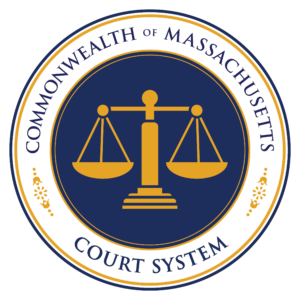 On Monday, April 11, 2022, the Cyberlaw Clinic filed an amicus brief in the Massachusetts Supreme Judicial Court in support of four former employees of GrubHub. Amici curiae Professors Jonathan Askin, Vivek Krishnamurthy, Christopher Morten, and Jason Schultz are scholars and clinicians engaged in research concerning the impact of technology on society. The brief supports the GrubHub workers’ argument that they are exempt from mandatory arbitration as “workers engaged in interstate commerce.”
On Monday, April 11, 2022, the Cyberlaw Clinic filed an amicus brief in the Massachusetts Supreme Judicial Court in support of four former employees of GrubHub. Amici curiae Professors Jonathan Askin, Vivek Krishnamurthy, Christopher Morten, and Jason Schultz are scholars and clinicians engaged in research concerning the impact of technology on society. The brief supports the GrubHub workers’ argument that they are exempt from mandatory arbitration as “workers engaged in interstate commerce.”
This case arises out of a class action complaint brought by Veronica Archer, Andrea Krautz, Paul Girouard, and Patrick Lee, alleging that GrubHub, in violation of the Massachusetts Wage Act, deprived workers of wages by adopting a “tipped minimum wage,” paying beneath minimum wage, and failing to pay reimbursements required by law. When the workers filed suit, GrubHub moved to compel arbitration based on arbitration agreements that included class action waivers. Because Massachusetts law prohibits the enforcement of arbitration agreements containing class action waivers, a key legal issue in the case became whether the Federal Arbitration Act (FAA) applies, displacing Massachusetts law.
The Federal Arbitration Act, enacted in 1925, sets out a general federal policy of enforcing arbitration agreements, but exempts “contracts of employment of seamen, railroad employees, or any other class of workers engaged in foreign or interstate commerce.” The question, then, was whether gig workers who provide local delivery of prepared and pre-packaged items, many of which travel in interstate commerce, qualify as workers engaged in interstate commerce. The Suffolk Superior Court answered in the affirmative and therefore denied GrubHub’s motion to compel arbitration. GrubHub appealed to the Massachusetts Supreme Judicial Court.
The Clinic’s brief, filed in support of the appellees and affirmance, sketches out the technological changes that have enabled the rise of the gig economy—one in which national platforms control massive work forces, while avoiding the regulatory implications of that control. The consequences of arbitration agreements, which disincentivize workers from bringing claims and shield any claims that are brought from public scrutiny, are amplified in the gig economy context because gig employees tend to be among the most vulnerable.
The brief then argues that the open question of whether the FAA’s exemption includes GrubHub drivers like the plaintiffs is best tackled through dynamic statutory interpretation. This functionalist approach is well-suited to grappling with the practical impacts of technological change and the realities of the gig economy. In this case, it is a practical reality that GrubHub drivers participate in interstate commerce. As the Ninth Circuit recently ruled, the fact that local drivers may only go the “last mile” in an interstate operation does not lessen their role in interstate commerce. Recognizing that the FAA’s exemption includes GrubHub drivers stays within the bounds of previous Supreme Court precedent, which limits the exemption to transportation workers, while allowing the FAA to respond to the harsh realities of the gig economy.
DoorDash, Uber, Lyft, the Chamber of Commerce, and the New England Legal Foundation filed amicus briefs in support of GrubHub, largely representing industry interests.
The Clinic’s brief was authored by Spring 2022 Cyberlaw students Richard Hong, Zoe Kaiser, Jae Hyun Kim, Miriam Shestack, and Jaylia Yan, collaborating closely with HLS Clinical Instructor Mason Kortz. The Clinic is grateful to have the opportunity to support legal scholars on this important issue, and looks forward to the Supreme Judicial Court’s decision in this case.
